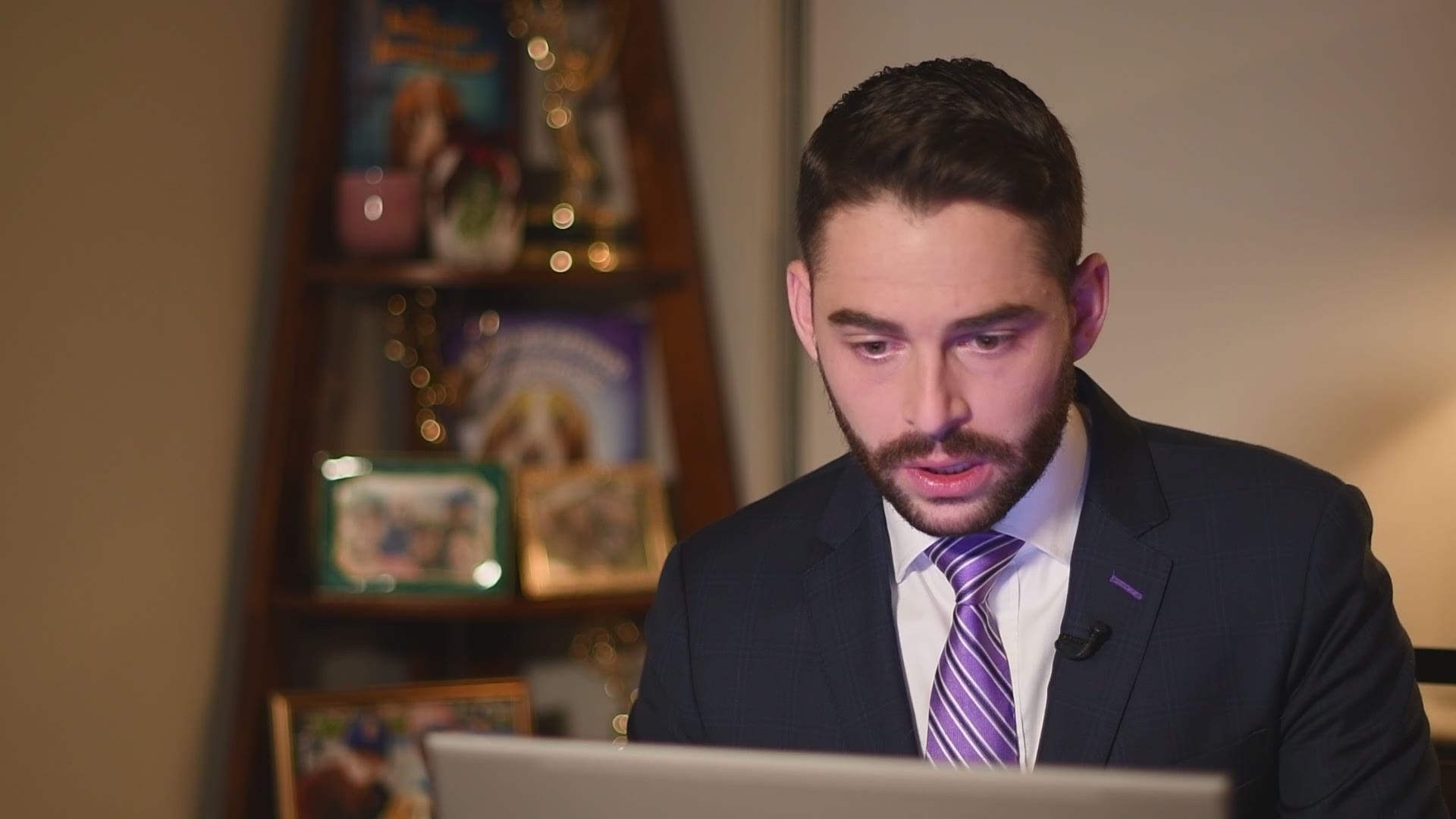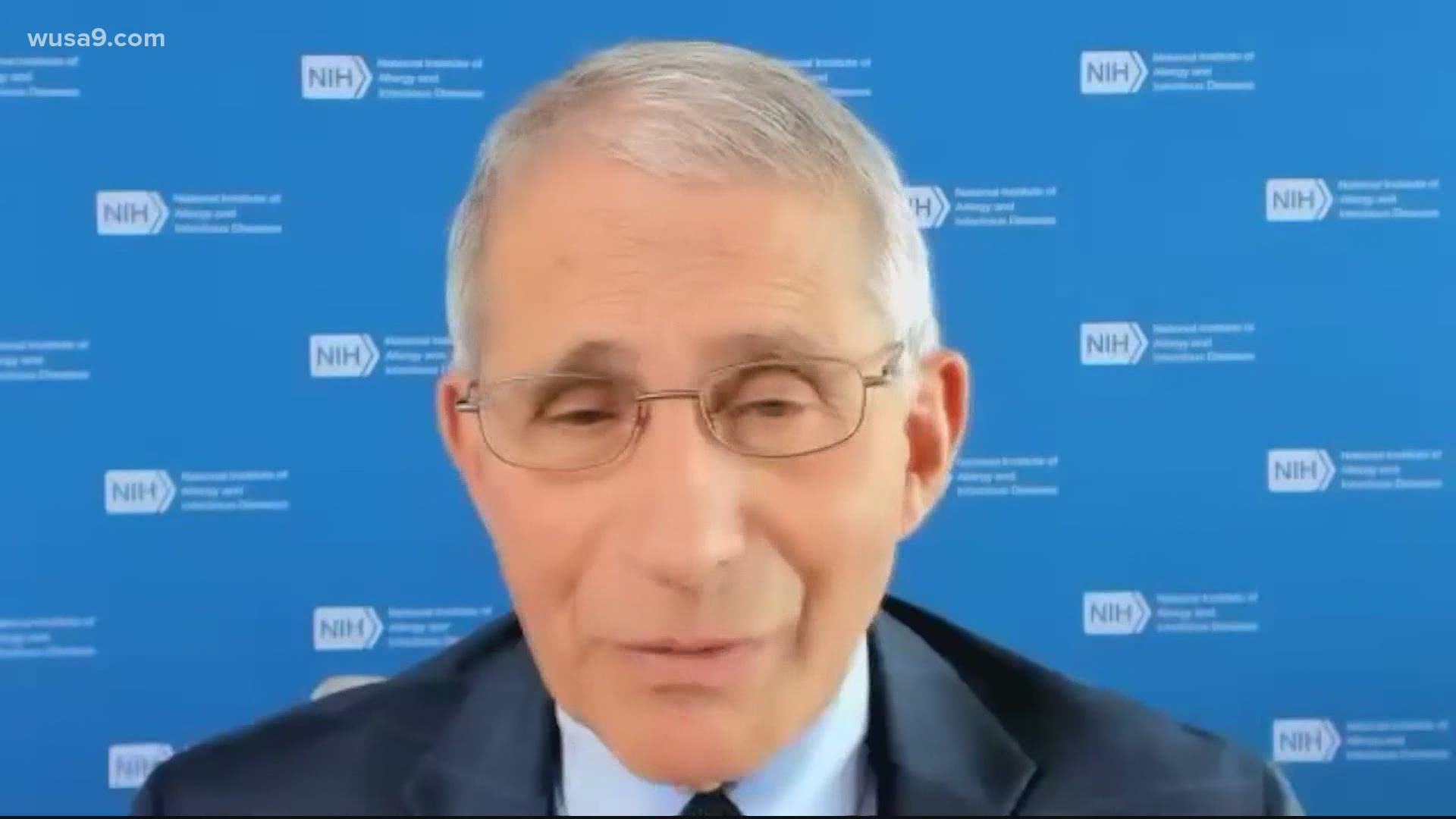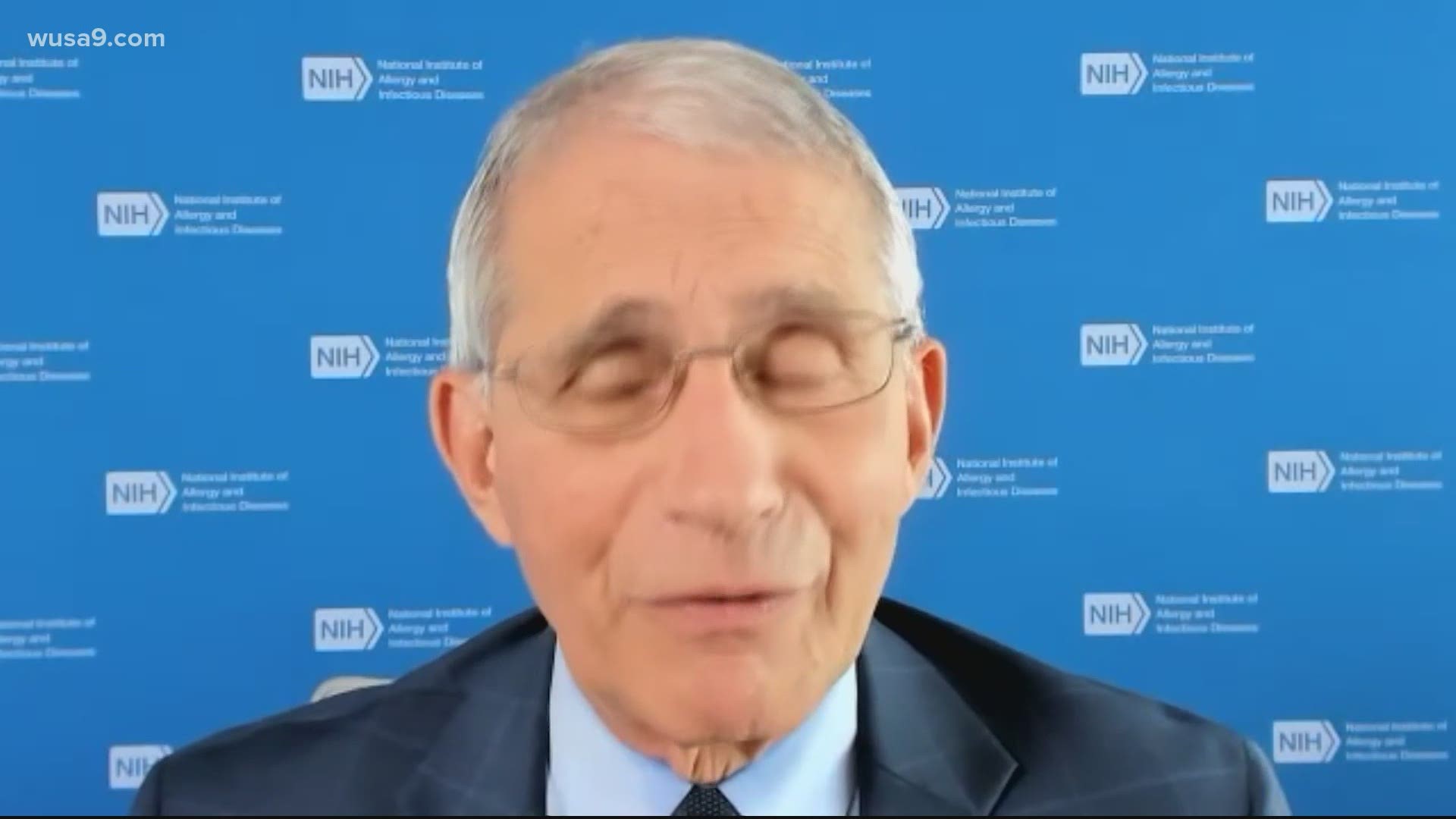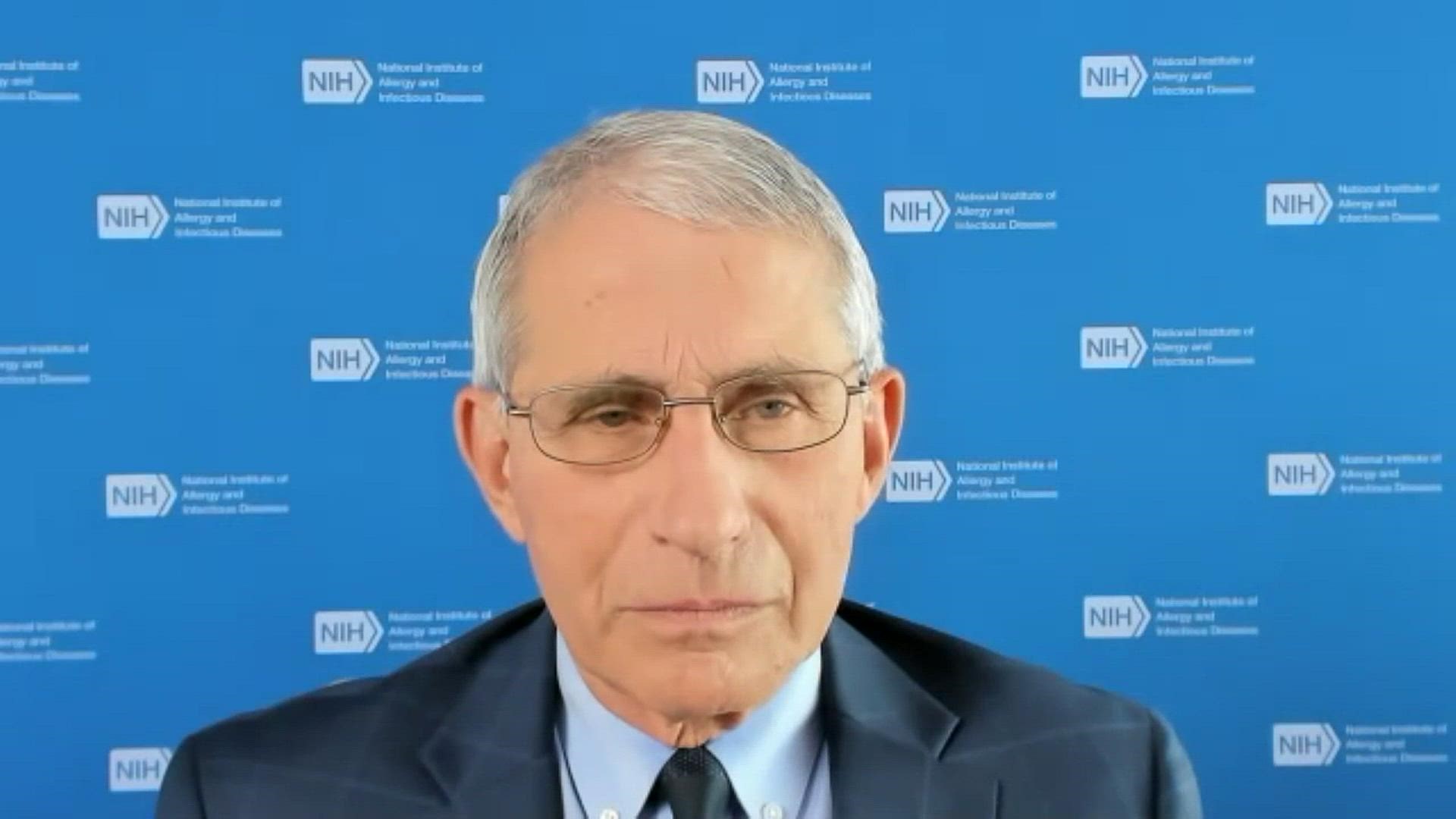WASHINGTON — The holiday season is still in swing, with more and more states doubling down on lockdown measures as coronavirus cases surge across the country.
With more and more people looking to travel to visit families, or already traveling and hosting gatherings for Thanksgiving, confusion over what's allowed and what upcoming restrictions are have been rampant.
To help clarify guidance and get you the answers you want to know, our Verify team talked to one expert who has a lot of experience: the nation's leading infectious disease expert, Dr. Anthony Fauci.
"I think there is a considerable risk that a couple to three weeks from now, we might start seeing yet again, another surge," Fauci told WUSA9.
From holiday travel repercussions to potential increases in state restrictions before Christmas, here's a look at what Dr. Fauci said.
What will Thanksgiving mean for hospitalizations and deaths related to COVID in the coming weeks?
It's impossible to know the ins and outs of every family's safety measures for the country, Fauci said, making it difficult to give ballpark estimates or specifics on predicting what the numbers could look like as a result from recent Thanksgiving travel.
"We can't do anything about the travel that has already occurred and that's occurring now as people are returning from the Thanksgiving holiday," he told WUSA9. "Having said all of that, I think we have to at least expect the likelihood that we will see a blip or a bit of a surge superimposed upon the current surge that antedated the Thanksgiving holiday, but we hope it is not substantial."
Fauci continued, saying that a post-holiday surge is not unlikely -- in fact, it's reasonable.
"I'm afraid that there's a reasonable chance, given the volume of travel that we've seen reported on TV and other media, and the millions of people at airports and train stations, that I think there is a considerable risk that in two, three weeks from now, we might start seeing yet again, another surge because what was happening in some states," he said, adding that he hopes to see states that were on the decline to continue that trend.
"I'm afraid it may, you know, go back up again," he said. "We'll just have to wait and see."
What should I do before traveling in December?
First and foremost, try and contain and limit your travel as much as possible, Fauci says.
"I know, particularly when you're in a situation where you're approaching another big holiday season, that before you start making plans that you would have to cancel, think seriously," he said, adding the importance of creating a risk-benefit determination to see the extent of who you would be endangering and the safety measures you are taking.
"So just think about it, that we really need to say we are in an extraordinarily unique time, I mean, it is unprecedented in the last hundred and two years," he continued. "But here's what we're going through — it's real. The numbers don't lie. You see, we've broken records of hospitalizations, we have over 266,000 deaths and over 13 million infections. Those are real numbers and real people, we've got to see as best as we possibly can to blunt that."
What if I traveled during Thanksgiving? What do I need to do now?
Again, it's hard to determine each person's exposure, but for the most part, Fauci said people should continue getting tested and taking preventative measures to reduce future exposure.
"It depends upon the circumstances that they were in, in the circumstances in which they are coming in," Fauci said. "If someone is coming back from travel, I don't think we need to say that everyone needs to be quarantined for a period or even tested. But for example, if someone is coming back into a situation, where they will expose themselves to persons who are in a category of high-risk, you want to get tested. And you might want to come back, quarantine yourself for a few days, get tested and figure out that you're okay, at least for now. But I don't think every single person needs to do that."
Does Fauci think states will need harsher restrictions ahead of Christmas?
The answer to that question will vary depending on the state, Fauci said.
"I had a couple of calls from health authorities in different states, trying to bounce off me my opinion of whether or not they should Institute harsher restrictions like selected types of lockdowns," Fauci said. "Not countrywide lockdowns, but saying for a particular city, or a particular town, in which it's clear they're overrunning their health system, maybe the only thing you could do is a temporary two or three-week shutdown to try and relieve the burden."
Fauci was very clear that mandated shutdowns are not something he wants to universally recommend
"One of the things you got to be careful about when you're dealing with as large a country as the United States, with so many states, so many cities, so many towns, is that you want to be careful about making blanket strong recommendations," he said. "States and cities should at least consider that [temporary lockdowns] if it looks like everything they've said everything they've tried, has not worked and they are on the brink of being overrun. If that is the case, then they should seriously consider some more stringent recommendations."
Dr. Anthony Fauci has served as head director for the National Institute of Allergy and Infectious Diseases since 1984, and has advised six presidents on a wide range of domestic and global health issues.




